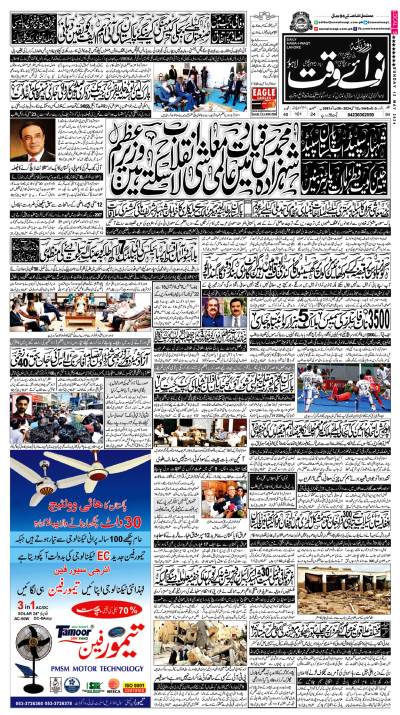The fashion industry in Pakistan has long been able to thrive by peddling certain ideas about itself. Exploiting feelings of insecurity, aspiration, and entitlement, for example, it relies on the notion that wearing particular kinds of clothes will make people look better and feel better about their lives. It also channels the theme of empowerment, with many contemporary advertising campaigns softening fashion’s brutally unrealistic standards of beauty by highlighting individual uniqueness and accomplishment. In this country, the fashion industry also makes claims to be being a vital part of the fabric of society, both in terms of its economic contribution as well as the cultural role it allegedly plays in combating the rising tide of extremism and intolerance. All of this and more ultimately amounts to little more than a justification for charging exorbitant amounts of money for baubles and trinkets predominantly enjoyed by the elite.
Some might argue that this depiction of the industry is unfair; after all, is there really anything wrong with wanting to look good? Would our world not be more dour and joyless without the kinds of artistic expression embodied in fashion? And would it not be churlish to criticize people for taking advantage of an obvious economic opportunity? All of this might be valid except for how some disturbing revelations about the abuse and exploitation of workers has cast a light on the sordid state of affairs that exists behind the glitz and glamour of the fashion industry. As reported widely on social media and in the national press, there have been calls to boycott clothing retailer Khaadi after reports emerged of how it summarily dismissed 32 people working in its factories. This was in addition to further allegations that the company mistreated its workers, paying them below minimum wage while forcing them to work 12 hours a day in appalling conditions. All of this prompted some workers, supported by the National Trade Union Federation (NTUF) and the Sindh Labour Federation (SLF), to take to the streets of Karachi in protest. While Khaadi initially refused to comment on the accusations made against it, the company eventually released a statement in which it claimed that it was being unfairly maligned as part of a systematic campaign launched by its rivals, that it strove to ensure the welfare of its workers, and that much of its production was, at any rate, undertaken by third party suppliers.
The accusation that the NTUF and the workers it is supporting are malicious provocateurs on the payroll of shadowy competitors is nothing more than the standard response that often greets any form of protest in Pakistan, and does not merit any serious consideration. Indeed, the suggestion that the workers engaged in holding Khaadi accountable are passive dupes being exploited by others simply denies their agency and serves to discredit whatever it is they are saying. At any rate, the facts of the matter are reasonably clear; even if Khaadi relies on third party suppliers to a great extent, it does nonetheless own several factories in Karachi where the abuse is alleged to have taken place. Similarly, even if the company claims that it does not have that many employees of its own, with the majority being brought in by independent contractors, it is hardly reasonable to suggest that the company has no responsibility to them.
In the 1990s, brands like Nike and GAP were famously boycotted around the world after evidence emerged of their reliance on labour exploited in sweatshops set up across the developing world. At the time, these companies claimed that they bore no responsibility for the actions of their contractors but as subsequent events showed, this excuse was insufficient to satiate the anger of those who rightly felt that Nike and GAP were profiting from the wanton and untrammeled abuse of some of the world’s most marginalised workers. The same is true of Khaadi. While the company is correct when it says that its practices are not really different from those of its competitors, this statement simply indicates the culpability of the fashion industry as a whole. Relying on contractors to provide workers conveniently allows companies like Khaadi to get away with exploiting workers without having to provide them with employment contracts, decent wages, or effective workplace protections. It is a brutally exploitative system, and it is perpetuated by the unscrupulous nature of those who profit from it, the continued indifference of the state, and a lack of scrutiny and concern on the part of customers.
The dismal state of labour in Pakistan is an inevitable consequence of the capitalist economic system. In the absence of a viable political party or movement that could represent it, and in a context where neoliberal dogma and global economic competition intersect with an often dysfunctional state thoroughly captured by the elite, labour in Pakistan today has little choice but to submit to the rapacious exploitation that it is routinely subjected to. While the case of Khaadi is one that has garnered some attention in the past week, the truth is that what happens in its factories is not atypical and is, in fact, the norm in the Land of the Pure. Every day, as the media reports on political scandals, terrorism and militancy, and tensions on the country’s borders, it is often easy to forget the routine structural violence that mars the lives of the poor in Pakistan. Lacking representation and afforded scant protection, the poor are compelled to eke out whatever existence they can as part of a system that is unquestionably stacked against them. Boycotting Khaadi may not solve this problem, but it is definitely a step in the right direction.





